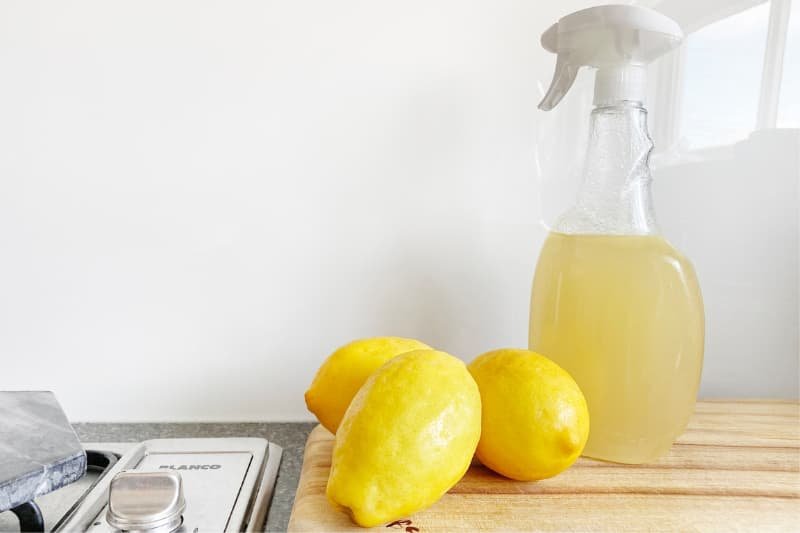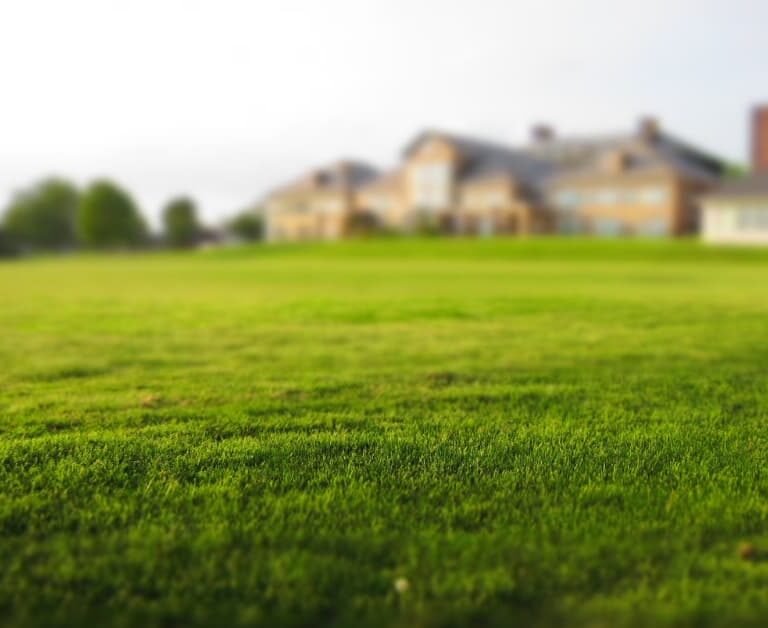
Maintaining a clean and beautiful patio is essential for anyone who enjoys spending time outdoors. Regular cleaning is necessary to prevent tough stains from setting in and to keep the patio looking its best. However, the use of chemical cleaners can be harmful to both the environment and our health. This is where natural cleaning solutions come in, offering a safe and effective alternative.
Chemical-free patio cleaning not only benefits our health and the environment, but it can also be more cost-effective in the long run. Chemical cleaners can damage the concrete and other surfaces of our patios, leading to costly repairs and replacements. By using natural cleaning solutions, we can keep our patios in great condition without causing harm to ourselves or the planet.
In this article, we will explore various tips and tricks for chemical-free patio cleaning, including natural cleaning solutions and effective techniques for removing tough stains.
Short Summary
- Regular cleaning can prevent tough stains from setting in on a concrete patio.
- Chemical cleaners can cause fading and damage to the concrete, so a natural cleaner is a safe and effective alternative.
- Baking soda and vinegar can be used together to create a cleaning mixture for fresh stains, while kitty litter or cornstarch can absorb grease stains.
- Rust stains and red mud stains may require oxalic acid or a commercial cleaner with oxalic acid, and power or pressure washing can help remove tough stains.
Why Avoid Chemicals?
Chemical cleaners should be avoided when cleaning a patio, as they can cause harm to both human health and the environment. Regular exposure to these cleaning chemicals can lead to respiratory problems, particularly for those with pre-existing conditions such as asthma or allergies. These chemicals can also cause severe skin irritation and damage to the eyes if they come into contact with them.
Moreover, chemical cleaners can have an adverse impact on the environment. When these chemicals are used, they can seep into the soil, and eventually make their way into bodies of water, causing harm to aquatic life.
Additionally, when these chemicals mix with other substances, they can lead to the formation of harmful gases, such as ammonia and chlorine, which can be dangerous to both humans and animals. Therefore, it is crucial to use non-toxic and eco-friendly alternatives when cleaning a patio to prevent health risks and minimize environmental impact.
Natural Cleaning Solutions

Using natural cleaning solutions is a safe and effective alternative for maintaining a clean and stain-free patio. Chemical cleaners can cause fading and damage to the concrete, and can also have adverse impacts on human health and the environment. DIY cleaning recipes using eco-friendly alternatives can be just as effective in removing tough stains without harming the patio or the people using it.
To make natural cleaning solutions for your patio, you can use ingredients that are commonly found in most households. For example, a mixture of baking soda and white vinegar can be used to clean and remove stains on concrete surfaces. Another recipe involves mixing equal parts of water and hydrogen peroxide, which can help remove algae and mildew stains. A third idea is to use a mixture of salt and lemon juice, which can help remove rust stains. These DIY cleaning recipes are not only safe and non-toxic, but they are also affordable and easy to make at home.
| Natural Cleaning Solution | Ingredients | How to Use |
|---|---|---|
| Baking Soda and White Vinegar | 1 cup of baking soda, 2 cups of white vinegar | Mix the baking soda and vinegar slowly to create a cream soup-like mixture. Spread the mixture over the patio with a sponge mop. Wait 30 minutes for the mixture to work before scrubbing with a brush with nylon bristles. Rinse away the cleaning solution and allow the patio to dry completely. |
| Water and Hydrogen Peroxide | Equal parts of water and hydrogen peroxide | Mix the solution in a spray bottle and spray it on the affected area. Wait for 10 minutes before scrubbing with a brush with nylon bristles. Rinse away the cleaning solution and allow the patio to dry completely. |
| Salt and Lemon Juice | 1 cup of salt, 1 cup of lemon juice | Mix the salt and lemon juice to create a paste. Spread the paste over the affected area and let it sit for an hour. Scrub the area with a brush with nylon bristles and rinse away the cleaning solution. Allow the patio to dry completely. |
Using natural cleaning solutions not only keeps your patio clean and safe but also helps reduce your carbon footprint and promotes eco-friendliness. By using simple ingredients that are readily available, you can create effective cleaning solutions that are sustainable and non-toxic. Making a conscious effort to use natural cleaning solutions can benefit both you and the environment in the long run.
Effective Cleaning Techniques
Applying pressure washing to concrete patios can be an effective technique for removing tough stains. Power washing benefits include the ability to blast away dirt and grime without the use of any harsh chemicals. This technique uses water pressure to remove stains and debris, leaving the surface looking clean and fresh.
To make the most out of DIY cleaning tools, it’s important to use the right attachment for the job. A fan tip attachment is a good choice for general cleaning, while a rotary nozzle can be used for tougher stains.
It’s important to be cautious when using a pressure washer as it can damage the concrete if used improperly. It’s recommended to start with low pressure and gradually increase it until the desired level is reached. Additionally, it’s important to wear protective gear, such as goggles and gloves, to prevent injury.
Overall, power washing can be a sustainable and non-toxic way to keep patios looking their best.
Removing Tough Stains
The removal of tough stains on a concrete patio requires a combination of effective cleaning techniques and careful consideration of the type of stain being treated. Power or pressure washing can be effective for tough stains, but it is important to avoid using excessive force that can cause damage to the concrete.
For rust stains and red mud stains, oxalic acid or a commercial cleaner with oxalic acid may be necessary. It is important to clear the area and follow the instructions on the cleaner package for the best results.
For grease stains, a layer of kitty litter or cornstarch can be used to absorb the grease, which should be about an inch thick. Give the spot 24 to 72 hours to absorb the grease before rinsing off the entire area and allowing it to dry. If the grease stain is old, an industrial cleaner may be required for effective removal.
It is important to remember that stains become more difficult to remove the longer they sit, so it is best to clean them up as soon as possible. By using eco-friendly, sustainable, and non-toxic cleaning techniques, it is possible to maintain a clean and fresh-looking patio without damaging the environment or compromising one’s health.
Conclusion
Maintaining a clean and inviting patio doesn’t necessarily require the use of harsh chemicals. By implementing a few simple tips and tricks, you can effectively clean your patio without compromising the health of your family, pets, or the environment.
The key lies in adopting alternative cleaning methods and utilizing natural ingredients that are readily available. From regular sweeping and washing with water to employing vinegar, baking soda, and other eco-friendly solutions, there are numerous chemical-free options to tackle dirt, grime, and stains.
Not only will you achieve a spotless patio, but you will also contribute to a cleaner and healthier living environment.
So, go ahead and give these chemical-free patio cleaning techniques a try, and enjoy a pristine outdoor space that you can fully enjoy without any worries.
FAQs
Can pressure washing alone effectively clean a patio without the use of chemicals?
Pressure washing can effectively clean a patio without the use of chemicals, provided the stains are not too tough. However, chemical-free alternatives such as natural cleaners can be a more sustainable and non-toxic option for regular cleaning and prevention of tough stains.
Is it necessary to clear the patio of all furniture and debris before cleaning?
Clearing debris is an essential step in chemical-free patio cleaning. Removing furniture and clutter beforehand ensures a thorough and safe cleaning process. This eco-friendly approach promotes sustainability and non-toxicity for a healthier outdoor living experience.
How long should the baking soda and vinegar mixture sit on the patio before scrubbing with a brush?
For optimal scrubbing time after Baking soda and vinegar application on a patio, wait for 30 minutes before scrubbing with a nylon brush. This eco-friendly and non-toxic method is a sustainable way to clean a patio without the use of chemicals.
What is the best way to remove old grease stains from a patio?
Effective methods for removing old grease stains from a patio include using an industrial cleaner or a mixture of baking soda and white vinegar and scrubbing with a nylon brush. Maintenance tips and protective measures include using a layer of kitty litter or cornstarch to absorb grease and cleaning the area regularly to prevent stains. All solutions should be eco-friendly, sustainable, and non-toxic.
Are there any specific safety precautions that should be taken when using industrial cleaners on a patio?
When using industrial cleaners on a patio, safety precautions should be taken to ensure the protection of both the user and the environment. Chemical-free alternatives, such as environmentally friendly cleaners, can provide a non-toxic and sustainable option for patio cleaning.




